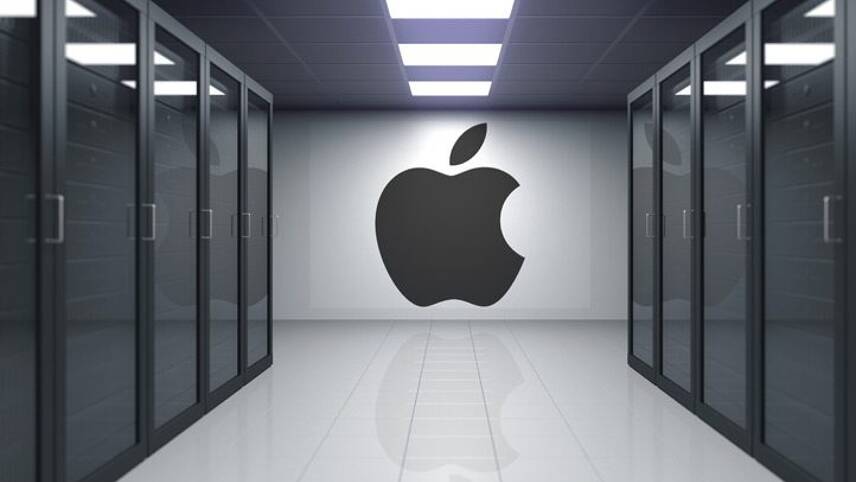Register for free and continue reading
Join our growing army of changemakers and get unlimited access to our premium content

Apple has committed to sharing its approach and progress towards carbon neutrality through a roadmap that will be shared with other companies
Apple is already operating as carbon-neutral across its business operations and facilities and is powered by 100% renewable electricity. However, alongside the launch of its latest Environmental Progress Report, the technology company has unveiled a new net-zero commitment.
The new ambition will see Apple make its entire business, manufacturing supply chain and product life cycle net-zero emissions by 2030, 20 years ahead of the Intergovernmental Panel on Climate Change (IPCC) recommendations to limit global warming to no more than 1.5C.
Apple will do this by reducing emissions by 75% by 2030, with the remaining 25% covered by carbon removal solutions. As such, Apple has promised that by 2030, every one of its products sold will have zero climate impact.
“Businesses have a profound opportunity to help build a more sustainable future, one born of our common concern for the planet we share,” Apple’s chief executive Tim Cook said.
“The innovations powering our environmental journey are not only good for the planet — they’ve helped us make our products more energy efficient and bring new sources of clean energy online around the world. Climate action can be the foundation for a new era of innovative potential, job creation, and durable economic growth. With our commitment to carbon neutrality, we hope to be a ripple in the pond that creates a much larger change.”
Carbon removal
Apple has committed to sharing its approach and progress towards carbon neutrality through a roadmap that will be shared with other companies. The company has already outlined a few steps towards its goals.
Apple has today (21 July) confirmed a new fund that will invest in restoration and protection projects for forests and natural ecosystems globally. The tech company will work with Conservation International to restore degraded savannas in Kenya and mangrove ecosystems in Colombia. To date, Apple has protected more than one million acres of forests across China, the US, Colombia and Kenya.
Electricity consumption
Apple’s report claims that the company reduced its carbon footprint by 4.3 million metric tonnes in 2019, largely by focusing on design efficiencies and improving recycling and recyclability of its products. Over an 11-year period, Apple has reduced the average energy needed for product use by 73%.
Additionally, Apple has confirmed that new renewables projects in Arizona, Oregon and Illinois have pushed the company’s renewable capacity for its corporate operations beyond the 1GW milestone. The company has coupled renewables integration with improvements to energy efficiency. Last year, Apple delivered energy efficiency upgrades across 6.4 million square feet of its building stock, reducing electricity consumption by almost 20% and saving the company $27m.
Supply chain management
Apple is widely regarded as an industry leader in terms of supply chain sustainability, having topped the 2018 Green Supply Chain Corporate Information Transparency Index (CITI). The company has launched huge programmes aimed at mobilising suppliers to procure clean energy.
Apple has increased the number of suppliers enrolled in a “supplier energy efficiency programme” to 92 in 2019. According to Apple, these suppliers have collectively reduced emissions by 779,000 metric tonnes across the supply chain annually.
More than 70 suppliers have also committed to using 100% renewable energy – equivalent to almost 8GW. Once completed, these commitments will avoid more than 14.3 million metric tonnes of CO2e annually — the equivalent of taking more than 3 million cars off the road each year.
Apple has also launched a US-China Green Fund that will invest $100m across the supply chain on energy efficiency projects.
Building on its supply chain efforts, Apple is developing an “Impact Accelerator” that will invest in minority-owned businesses that improve communities that are disproportionately impacted by environmental risks. The accelerator builds on Apple’s $100m Racial Equity and Justice Initiative.
Commenting on the announcement, Sam Kimmins, head of RE100 at international non-profit the Climate Group, said: “This is a major climate announcement from a company that shapes tech and business trends around the world.
“By driving this scale of climate ambition through its supply chain, Apple is making a big, global contribution to the move to clean energy, transport and manufacturing. It will have a particularly big impact on some of the most critical markets for tackling greenhouse gases.
“The 2030 timing is as important as the scale of this move. By then, the whole world needs to halve carbon emissions. Apple is proving that the biggest business in the world has the power to make that happen. It’s certainly a challenge. But given the speed, we have seen Apple move to renewable electricity through our RE100 program, and then influence others to do the same, we think they can do it.”
Matt Mace


Please login or Register to leave a comment.